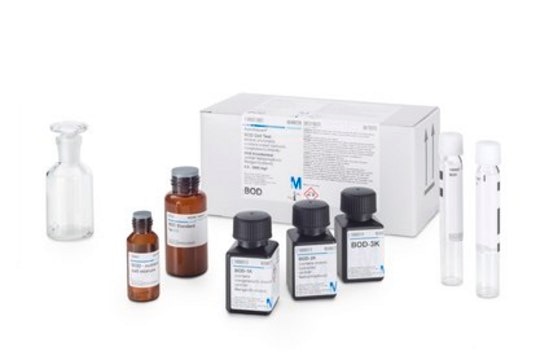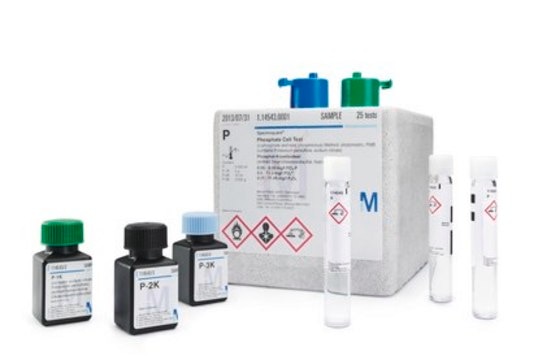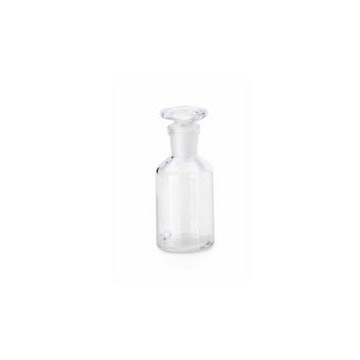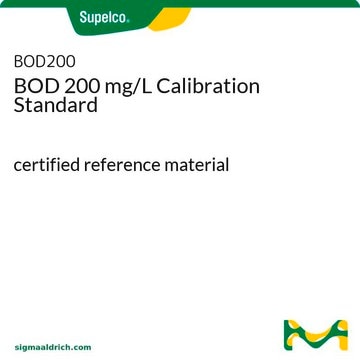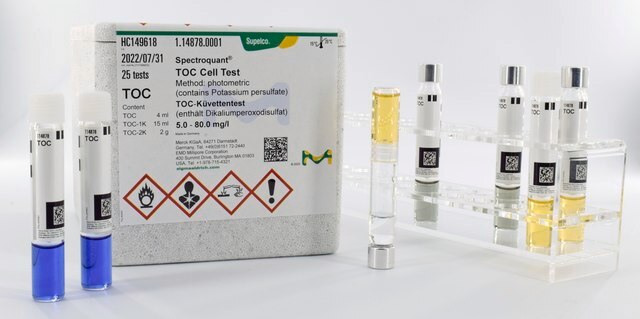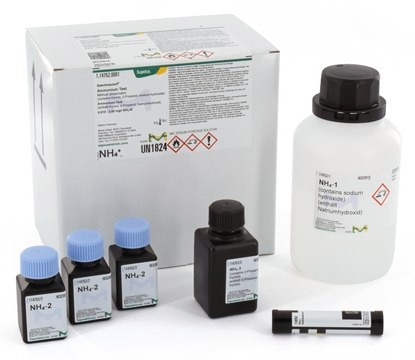1.00687
BOD Test, photometric
photometric, 0.5-3000 mg/L (BOD), Spectroquant®
About This Item
Recommended Products
product name
BOD Cell Test, photometric, 0.5-3000 mg/L (BOD), Spectroquant®
product line
Spectroquant®
Quality Level
usage
sufficient for 50 tests
analyte functional class(es)
biochemical oxygen demand (BOD)
measuring range
0.5-3000 mg/L (BOD)
technique(s)
photometry: suitable
compatibility
for use with Spectroquant® Move 100
for use with Spectroquant® Nova 60 A
for use with Spectroquant® Prove 100
for use with Spectroquant® Prove 300
for use with Spectroquant® Prove 600
detection method
photometric (mod. Winkler method)
storage temp.
15-25°C
General description
The BOD (biochemical oxygen demand) is defined as that mass of oxygen that is consumed by microorganisms to oxidatively degrade the organic substances in a sample. Using a cell test allows for an easy and efficient determination of BOD, following a modified Winkler method. All our Cell and Reagent Test Kits are equipped with the unique Live ID (2D barcode) which allows seamless method recognition and contains essential information such as lot number, expiry date, and automatic calibration updates.
The Spectroquant® Cell Test for BOD comes with three empty 16 mm round cells as well as all the required reagents to perform the analysis according to the procedure described in the accompanying instruction leaflet.
Legal Information
signalword
Danger
Hazard Classifications
Acute Tox. 4 Oral - Eye Dam. 1 - Met. Corr. 1 - Skin Corr. 1 - STOT RE 2
Storage Class
8B - Non-combustible, corrosive hazardous materials
wgk_germany
WGK 2
flash_point_f
Not applicable
flash_point_c
Not applicable
Certificates of Analysis (COA)
Search for Certificates of Analysis (COA) by entering the products Lot/Batch Number. Lot and Batch Numbers can be found on a product’s label following the words ‘Lot’ or ‘Batch’.
Already Own This Product?
Find documentation for the products that you have recently purchased in the Document Library.
Our team of scientists has experience in all areas of research including Life Science, Material Science, Chemical Synthesis, Chromatography, Analytical and many others.
Contact Technical Service